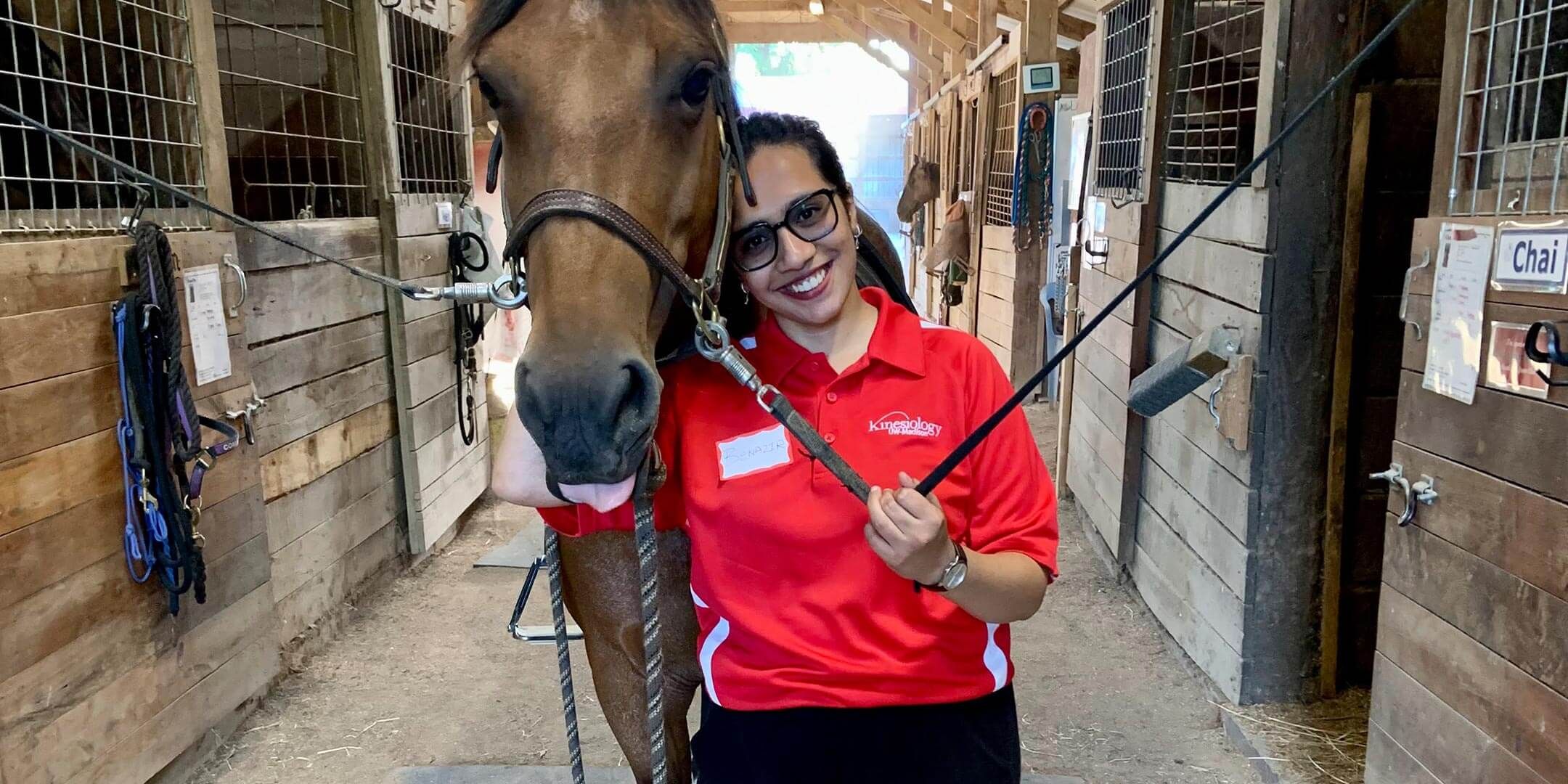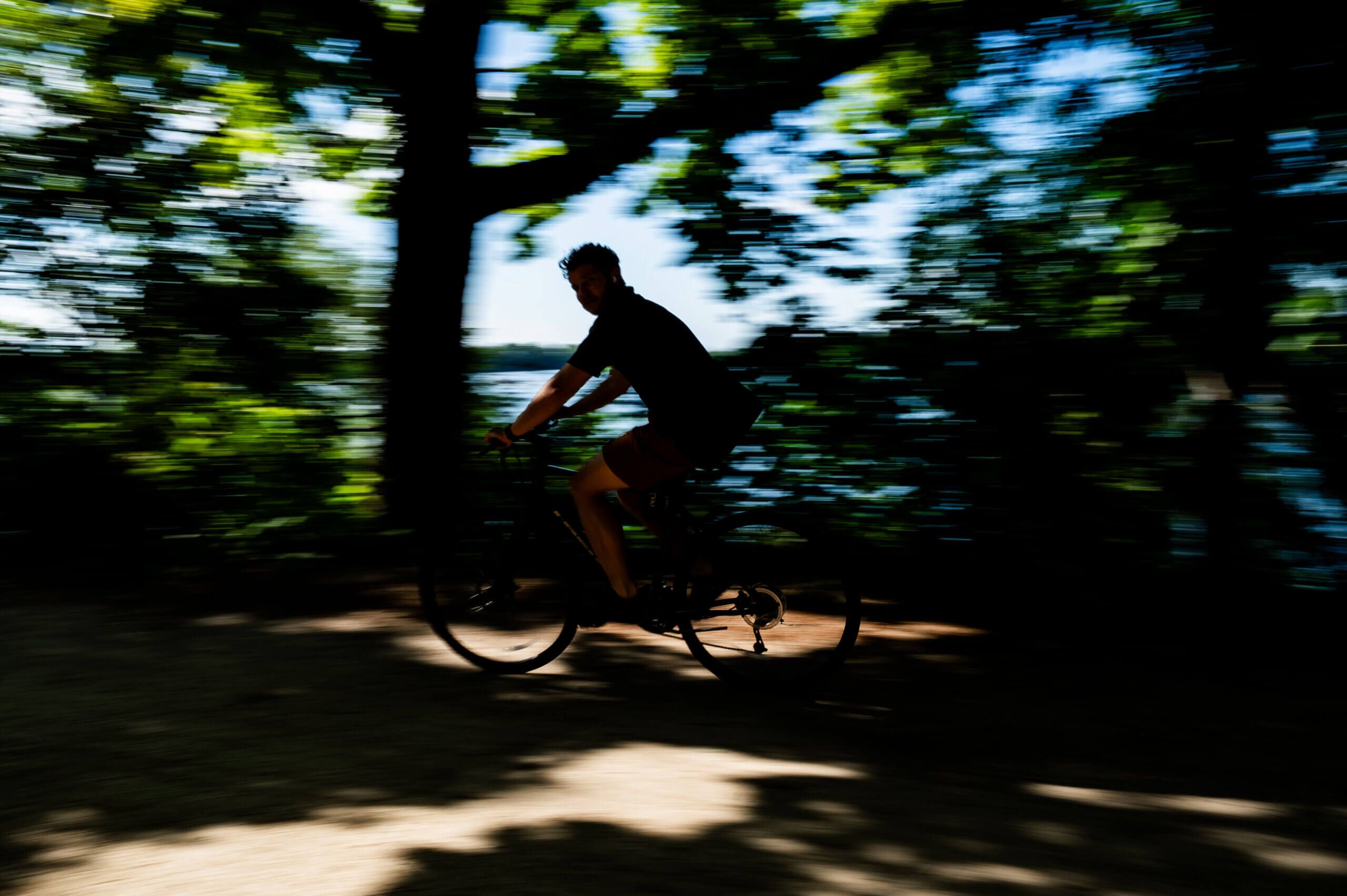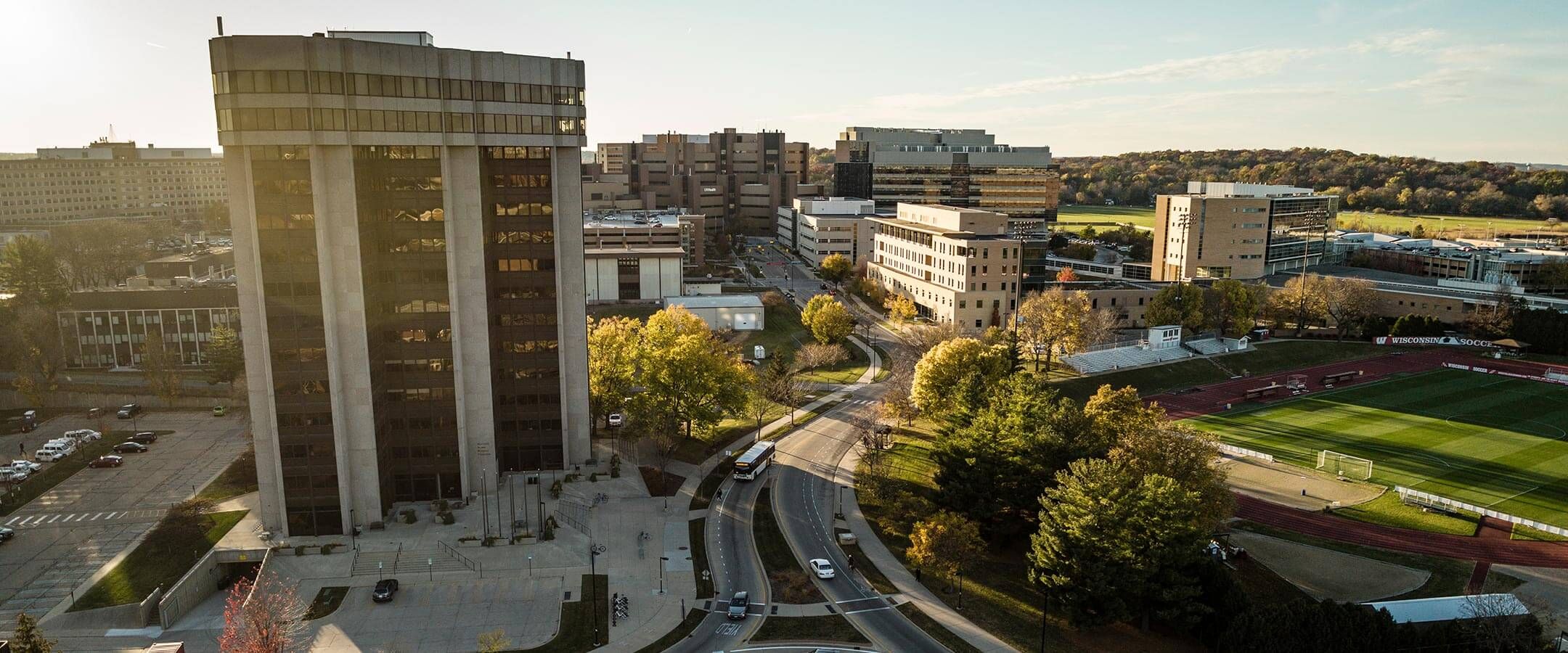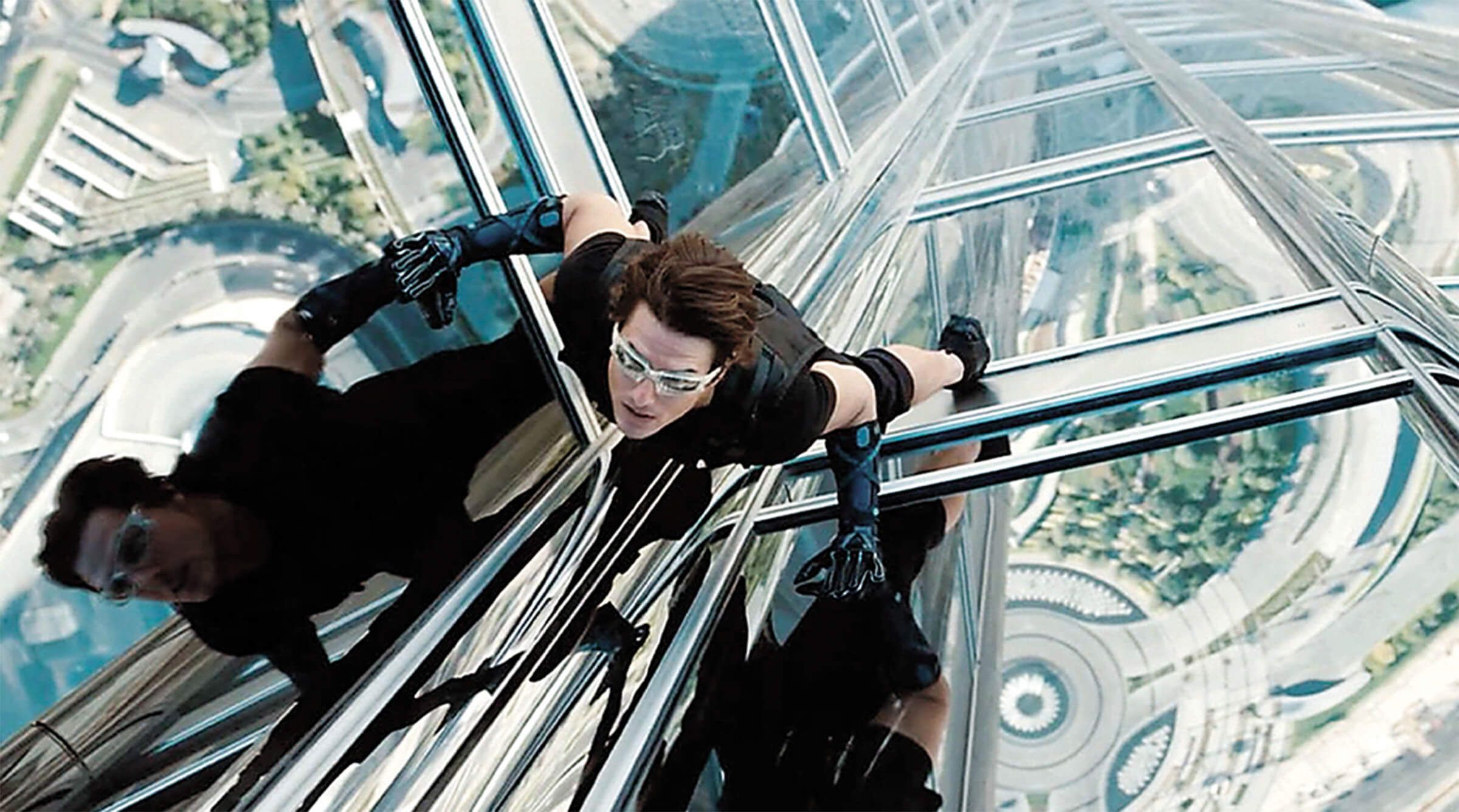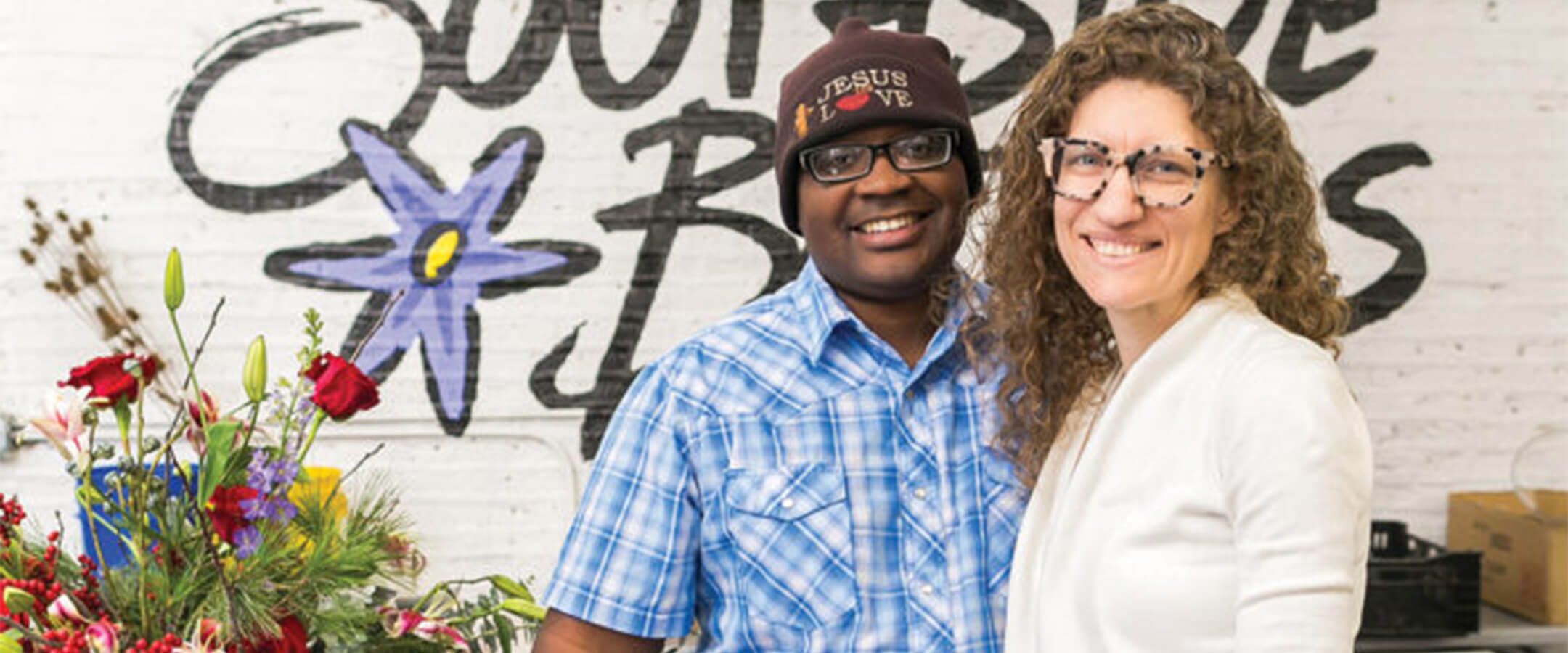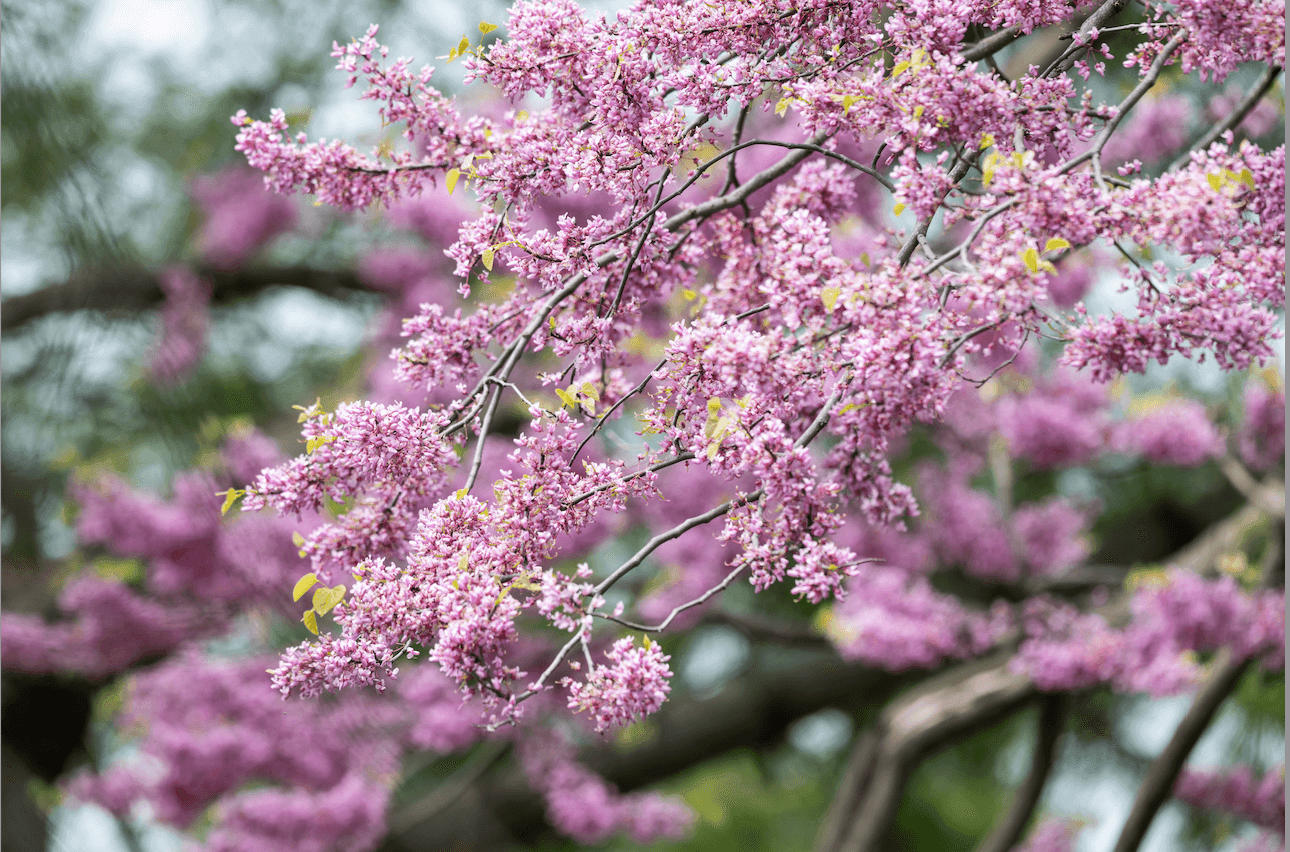The rules of the game Red Light, Green Light are simple. With the right rider, even a horse can play.
“[The instructor] says ‘green,’ and [the child] starts moving the horse, so they’re using the hand grips or the manual dexterity — using the reins — to control the horse,” says Benazir Meera PhDx’23. “Then they say, ‘red light.’ At that time, they’re asking the horse to stop.”
For the horse, the game is a test of obedience. For the rider, it’s an exercise of their horsemanship. And for Meera, a Conway Adapted Fitness Fellow in the UW Department of Kinesiology, it’s just the beginning of instilling lessons that can last a lifetime. By pairing her experience as an athlete with her expertise in adapted fitness interventions, Meera creates opportunities for children with autism spectrum disorder (ASD) to find freedom, confidence, and joy in movement.
Within the field of adapted fitness — exercise programming designed to accommodate individuals’ unique abilities — Meera’s research explores the development of “scalable and sustainable e-health interventions” that prolong the benefits of in-person, adapted fitness programs. Under the guidance of her mentor, associate professor of kinesiology Beth Fields, she partners with Three Gaits, a therapeutic horsemanship center in Stoughton, Wisconsin, to assist riders of all abilities while she works on developing a mobile app that extends the physical exercises of riding beyond the in-person sessions.
“When a child is on the horse, they’re continuously trying to keep up their posture [and] keep up their balance with the rhythmic equine movements, and these are getting carried over to their motor skills or motor functions,” Meera says. “We want to be able to give them more games and activities that they can practice at home and in community settings that are a reflection of what they do during the horseback riding sessions.”
If the distance between horseback riding and daily motor skills sounds like a lot of ground to cover with theory, Meera is the one for the job: after receiving her bachelor’s degree in electrical and electronics engineering from Visvesvaraya Technological University in India, Meera — a decorated short-track speed-skater for India’s national team — completed a master’s program in global sports management at Seoul National University in South Korea. Upon connecting with professors in North America about her interest in adapted physical activity, she crossed the world once more to join kinesiology professor Samuel Hodge at Ohio State University before making her way to the UW to work with one of Hodge’s former mentees: associate professor of kinesiology Luis Columna.
It was through Columna’s Fit Families program that Meera began working more with mobile apps as adapted fitness interventions. The program provides families with resources to develop and strengthen fundamental motor skills in children with ASD. Before the pandemic, Fit Families hosted in-person events during which Meera and her colleagues led children in physical-fitness activities while their parents learned to coach them in fundamental motor skills like kicking and throwing. When the pandemic forced them to shift the program online, Meera reignited her passion for engineering by developing an app that helped parents facilitate the games and activities from the live programs in their own homes.
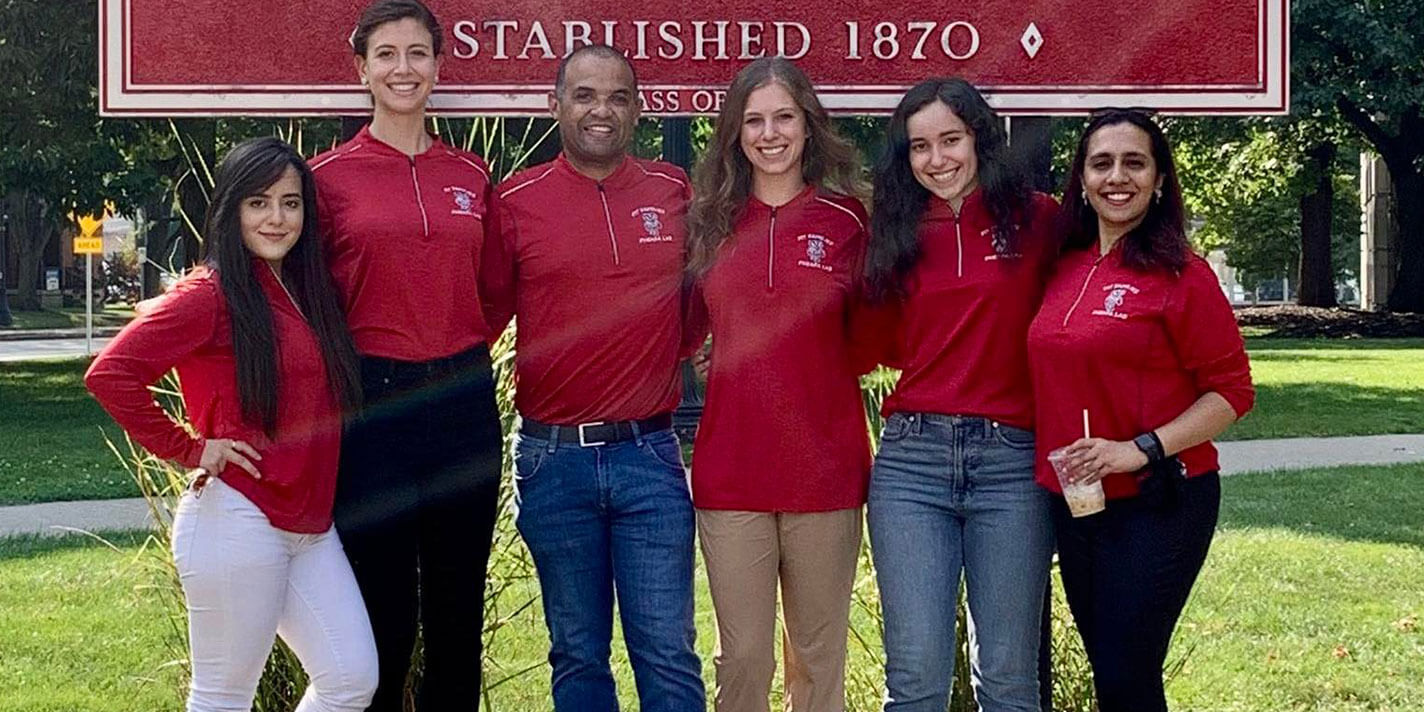
Her engineering background isn’t the only way in which her time in India influenced her present-day research: an avid horseback rider, she first witnessed the transformative power of animal-assisted intervention as an undergrad while volunteering with therapeutic horseback-riding sessions for children with cerebral palsy.
“I couldn’t believe the kind of improvement they had overall in terms of motor skills, communication, socializing. … It was profound,” she says. “That stuck in my head. I could not just let that go. I was trying to find ways to get that back into my research somehow.”
One continent and two (going on three) degrees later, Meera uses her research to supplement existing gaps in parental involvement in riding lessons and to increase everyday applications of the skills learned during the lessons. A speaker of five languages, she is already working with a multilingual and multicultural team to translate the Fit Families app into Spanish as part of a concerted effort to create resources that sidestep common cultural and structural barriers to these services.
“There was this one particular family that expressed that they would not have been able to participate in this program if not for the researchers being multilingual,” Meera says. “A parent expressing that their entire participation [was] dependent on the researchers being able to speak their language, [and] them feeling welcomed because of that, that is so important and has even motivated me to follow a line of research that involves more inclusive, diverse populations.”
The participants’ gratitude is deeply rewarding, but Meera returns it tenfold.
“[The kids and their families] are the ones that are actually teaching us how we can make things better for them. They are the ones that are using all of these resources, so we want to be able to cater to their needs, their expectations,” Meera says. “This program belongs to them.”
